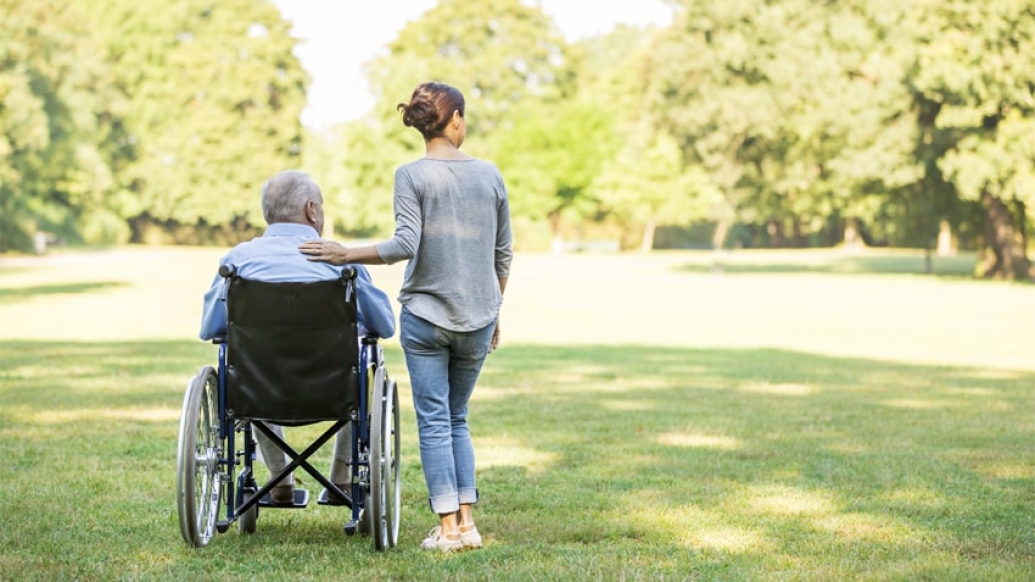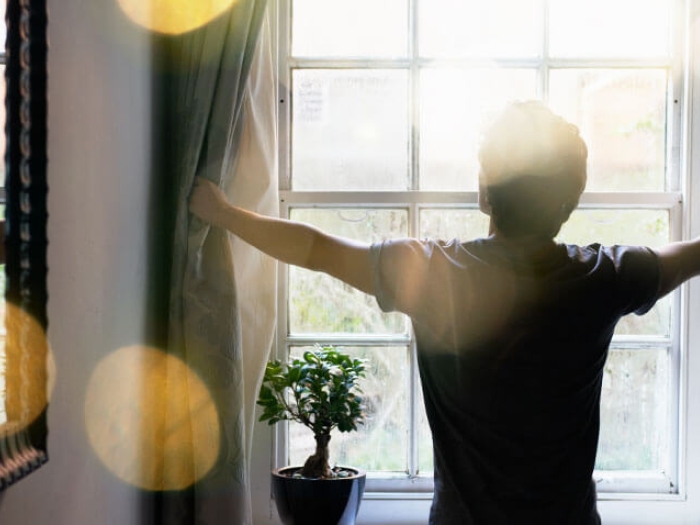There’s no question that adult caregivers have a lot on their plate, but it’s important for them to carve out personal time. A U-M wellness expert explains why.
7:00 AM
Author |

The demands that adult caregivers face daily are staggering.
From an ailing family member's unpredictable moods to managing schedules and medication, the prospect of such complex care might be all consuming for some.
Which is why, amid the work and worry, it's easy to lose sight of one's own self-care. That divide can affect both the quality of the care provided as well as personal health.
SEE ALSO: An Easy Way to Beat Stress — and Build a Healthier Life
Caregivers are at particular risk of burnout. According to 2016 figures from the Alzheimer's Association, nearly 60 percent of caregivers for people living with dementia rate their stress level as "high" or "very high." Forty percent suffer from depression.
Fortunately, simple steps can be taken — even during chaotic times.
"It's hard to see the ways in which we miss opportunities for well-being throughout the day," says Laura Rice-Oeschger, who, as wellness coordinator for the Michigan Alzheimer's Disease Center, works with adult caregivers to find strategies for better balance. "The (positive) 'micro' habits build up to be quite a significant change in pushing the needle of the compass. Then wellness becomes a habit."
She suggests five tips to help caregivers find balance:
Take breaks throughout the day
Once a person becomes familiar with pausing, it becomes more of a habit. Most of us don't obey traffic laws in our lives; we plow through the stop sign. We miss opportunities to taste our food, to notice we are breathing and to be aware of more moments in our lives.
From the time we get out of bed in the morning, we're often not even "there." We just sort of wake up and start "doing" rather than having habits and practices that check in with our nervous system. It sounds so simple, the mindfulness … taking a kinder and healthier approach to challenges and how we encounter and deal with what's coming at us.
Tap into your social network
Caregiving is the work of many people. You first have to recognize that a little help might be necessary. We find that a lot of care providers, particularly men, delay asking. Women tend to network and have some natural connections that make them more inclined to reach out. It truly takes a team to provide the best care. Think outside the box and about who can do the little things that go a long way.
SEE ALSO: How Diet Influences Mood and Mental Health
You can even add technology to the team. I have used LotsaHelpingHands.com in my own support network. This is similar to the old-time phone tree where you had to call each other. Here, the technology sends out the requests and people can sign up. It is interactive and user-friendly, allowing key tasks to be assigned effortlessly.
Make room for purposeful exercise
I meet caregivers with amazing physical regimens; early morning swimmers or long-distance runners who can tell when they're "in the zone." But they're also working through scenarios — situations that actually aren't happening — rather than just swimming or taking that walk. Their minds haven't slowed down.
We encourage care providers to consider what they're doing while exercising. It is easier to remember what annoys us and is troublesome than what things have been pleasant. It takes an intentional noticing throughout the day to take in the good.
Be kind to yourself
I hear this most often: "Am I doing this right? What have I missed?" Feeling desperate is all too common. Stress is a fertilizer for those emotional states, the stress, the shame. There's no rest in this. We really want to encourage ongoing support and counseling.
People may also assume the caregiver had a great relationship with his or her partner (spouse, parent, sibling) before this started. But some do not have a great relationship — and, with a lot of unresolved issues, caring may feel like an added burden. Even in the best circumstances when people really love each other, there can still be a lot of frustration, sadness, guilt and shame.
Seek outside help
There are a lot of community-based resources, from day programs that are quite wonderful to in-home help. I can't say enough about geriatric care managers.
Families might consider contacting the Alzheimer's Association or their local area agency on aging. A trained care expert can help you troubleshoot problems and navigate next steps. The "what-ifs" are often what give us the most stress.

Explore a variety of healthcare news & stories by visiting the Health Lab home page for more articles.

Department of Communication at Michigan Medicine
Want top health & research news weekly? Sign up for Health Lab’s newsletters today!





